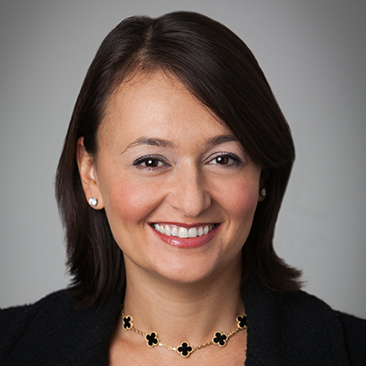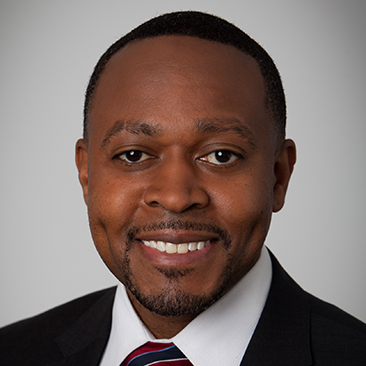As the 2023 annual meeting season begins, asset managers and large institutional investors are engaging with companies on a range of issues. On the heels of the annual letter from BlackRock Chairman and CEO Larry Fink to investors, BlackRock Investment Stewardship (BIS) released its list of engagement priorities for 2023, which are generally consistent with those from prior years. Similar to Mr. Fink’s letter, the message from BIS is that it does not tell companies what to do, but rather that its role is to engage with companies and encourage disclosure to help its clients understand how company leadership is managing risk and capitalizing on opportunities to enhance long-term shareholder returns. Below, we discuss BlackRock’s 2023 engagement priorities, as well as the key takeaways from Mr. Fink’s 2023 letter, both of which should inform public company disclosure and engagement with BlackRock and other important investors.
BlackRock’s Five Engagement Priorities for 2023
- Board quality and effectiveness. BlackRock believes that a high-caliber, effective board responsible for overseeing and advising management and being accountable to shareholders is fundamental to a company’s financial success and ability to create long-term value. Specifically, BlackRock’s key board engagement topics will be board composition, independent leadership, board oversight of management, board and management succession planning, and the board’s own nomination and evaluation process.
- Strategy, purpose, and financial resilience. BlackRock believes that purpose-driven companies that effectively balance key stakeholder considerations and deliver financial value for their shareholders are better able to attract long-term capital and navigate volatility. BlackRock will engage with companies on their long-term corporate strategy, purpose, and financial resilience to understand how companies align their long-term corporate goals with their capital allocation.
- Compensation incentives aligned with financial value creation. Recognizing the importance of executive compensation as a tool to drive long-term financial value, BlackRock will engage with companies if it identifies misalignments between executive pay and company performance. BlackRock will give particular attention to the board’s determination of how executive compensation aligns with the financial interests of long-term investors.
- Climate and natural capital. Echoing the message in Mr. Fink’s letter, BlackRock states that its role is to help clients navigate investment risks and opportunities–not to “engineer a specific decarbonization outcome in the real economy.” BlackRock will engage with companies to understand how their plans to navigate the material climate-related risks and opportunities presented by the energy transition may impact its clients’ investment outcomes, and encourages companies to publish disclosures that help investors understand these risks. More specifically, BlackRock encourages disclosures aligned with the reporting framework developed by the Task Force on Climate-related Financial Disclosures (TCFD), and welcomes efforts by the International Sustainability Standards Board (ISSB) to develop a global baseline of sustainability reporting standards. Recognizing the complexity of scope 3 emissions disclosure, BlackRock notes that although it would be helpful to be able to evaluate companies’ assessments of their emissions across their value chain where appropriate, such scope 3 disclosures will necessarily be made on a best-efforts basis.
Additionally, with regard to natural capital, BlackRock focuses on engagement and disclosure with respect to three key components–land use, water and biodiversity, which it believes can affect the long-term financial returns of companies with material exposure to nature-related impacts and dependencies.
- Company impacts on people. BlackRock will engage with companies on their human capital management to ensure that companies have workforces with the skills and expertise necessary to execute their long-term strategies. BlackRock will also engage with companies on how they manage material human rights issues and monitor the effectiveness of their human rights practices on a best-efforts basis.
Disclosure and Engagement Highlights of Mr. Fink’s Annual Letter
Although Mr. Fink’s letter typically has been bifurcated into a letter to CEOs in late-January followed by a letter to investors in March, this year, in perhaps a move away from targeted stewardship, the letter to investors is addressed to all of BlackRock’s stakeholders, including shareholders, clients, employees, partners, communities, and companies in which its clients are invested. The 2023 letter underscores BlackRock as a fiduciary whose critical roles are to identify short- and long-term trends that may affect clients’ investments and to provide clients with choices for their investments, which are largely informed by corporate disclosure and engagement. Some relevant highlights for companies to consider as they identify their disclosure and engagement priorities for 2023 and beyond are as follows:
- Energy Transition: Climate Risk is Investment Risk. Although Mr. Fink’s letter does notcontain the acronym ESG, the components of ESG remain clearly embedded in the discussion with a focus on disclosure. The letter indicates that climate risk management and the energy transition remain central to BlackRock’s long-term investment philosophy and reiterates that climate risk is an investment risk, citing the increasing numbers of natural disasters around the world having a significant impact on the market. However, Mr. Fink asserts that BlackRock is not aiming to “engineer a particular outcome in the economy” or to be the “environmental police,” leaving it to companies to “define their own strategy.” He states that government policy, technological innovation, and consumer preferences will drive the ultimate path and timing of the energy transition.
- Data and Disclosure. In acknowledging that the transition to a low-carbon economy is top of mind for many clients, Mr. Fink states that BlackRock’s clients have a range of investment objectives on the path to energy transition. Mr. Fink highlights the importance of “access to data” and analytics to help clients engage in investment opportunities in the energy transition, noting “better data is essential.” The letter further states that “more than half of the companies in the S&P 500 now voluntarily report Scope 1 and Scope 2 emissions,” with the expectation that more companies will provide these disclosures and further support BlackRock’s data analytics and inform climate transition-related investments. BlackRock continues to advocate for further disclosure on how companies will navigate the energy transition.
- BlackRock’s Role in Proxy Voting: More Choice. In the letter, Mr. Fink elaborates on BlackRock’s recently adopted pass-through voting policy, known as Voting Choice, which allows individual investors to vote the shares that they own in BlackRock-managed investment funds in connection with a company’s annual meeting. Currently, nearly half of BlackRock’s index equity assets under management are eligible for Voting Choice, including all of its public and private pension plan assets in the U.S. Through this initiative, BlackRock provides individual investors with a more direct role in the stewardship of capital, which Mr. Fink believes “can further strengthen shareholder democracy [which] only works when people are informed and engaged.” In this regard, Mr. Fink underscores the importance of company disclosure and engagement with asset managers, including BlackRock, about topics such globalization, supply chains, geopolitics, inflation, monetary and fiscal policy and climate change.
Mr. Fink also emphasizes the importance of robust proxy statement disclosures as companies increasingly engage with individual shareholders who are able to vote their shares. Finally, Mr. Fink cautions against overreliance on proxy advisory services, which can play an important role in helping make informed decisions on critical governance issues, but currently provide only a limited perspective given the dearth of such advisors, and calls for more advisors to add a diversity of views for shareholders to consider.
Mr. Fink’s 2023 letter also addresses other topics underscored in the evolving risks faced by BlackRock and its stakeholders stemming from the 2023 banking crisis, inflation, globalization, economic policies, technological changes, retirement crisis, climate change and continued geopolitical turmoil. In light of these intertwined challenges, it remains critical for companies to analyze and, where appropriate, disclose the impact of these risks on their financial results and operations.













